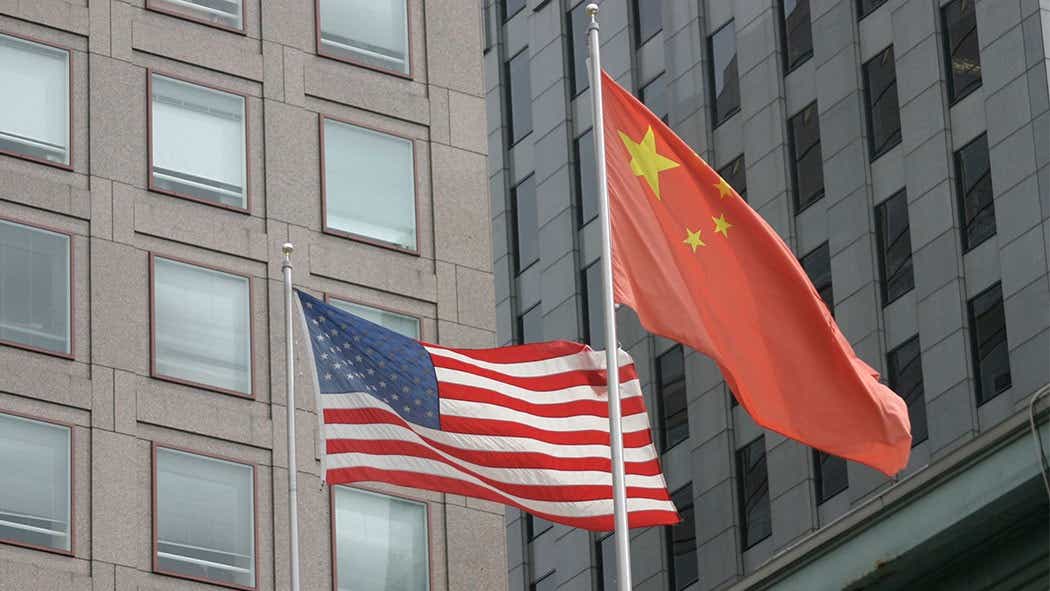The Chief International Correspondent weighed in on U.S.-China relations and discussed her new memoir.
As tensions between the Trump administration and China escalate, CNN’s Chief International Correspondent Clarissa Ward warned that one false step could have serious ramifications.
“The mood and rhetoric have become significantly darker and more hostile and I worry that a false step could lead to a serious escalation,” Ward told Wake-Up Call.
Ward, who lived in Beijing from 2009 to 2011, said she was worried that the U.S. is inching closer to a Cold War with China, “one that neither stands to gain from.” She said while there are areas of disagreement, she emphasized that at one time there was “excitement about the opportunities that cooperation between the two superpowers presented.”
Her comments come amid strained relations between the U.S. and China. In July, the Trump administration abruptly ordered the closure of the Chinese consulate in Houston, citing the need to protect American intellectual property. This came just weeks after FBI Director Christopher Wray called China the “greatest threat” to the United States.
China, in turn, has taken some retaliatory measures. Most recently, Beijing imposed new visa restrictions on U.S. media outlets, per the Foreign Correspondents’ Club of China. The group said journalists at several outlets, including CNN and The Wall Street Journal, have received letters granting them temporary status, which China’s Ministry of Foreign Affairs said could be revoked at any time.
TikTok, the Chinese-owned video-sharing app, has even gotten caught up in this clash. Though it was put on a 45-day hold, President Trump issued an executive order banning TikTok, which the popular social app has vowed to challenge.
Clarissa Ward is currently on tour promoting her new memoir, On All Fronts: The Education of A Journalist. From war-torn Syria to the Iraq War, Ward details her 15-year career covering international conflicts and crises.
From her time abroad, Ward said she has learned that foreign policy is “a fickle beast,” in that it changes from administration to administration. Through her time on the front lines, she said she has often found a disconnect between the way the U.S. sees itself and the way the rest of the world sees us.
“One of the most important parts of our work as international correspondents is trying to show the perception and impact of U.S. foreign policy on so many different people and places,” she said.
Part of her work has also been investigating extremism all over the world— this includes covering Western extremists who are drawn to ISIS to multiple stints of being entrenched with Syrian rebels. From her reporting, Ward has seen first-hand the dangers of extremism, emphasizing that you “don’t have to be a violent psychopath to be drawn to it.”
“I have interviewed a lot of extremists and the one thing most of them have in common is that they rarely see themselves as extreme,” she said. “Usually, they see themselves as defenders of something great, as heroes fighting to protect others,” she said. “And that’s the dangerous allure of extremism.”
Ward added that she has grown concerned about extremism in the U.S. amid a rise in social unrest over racial inequities and police brutality. White supremacists are the most “persistent and lethal threat” in the U.S. through at least next year, according to CNN, citing Department of Homeland Security draft documents.
President Trump has largely downplayed the threat of white nationalism, most notably saying there were some “fine people” among the extremists who sparked violence in Charlottesville, Virginia, in 2017. He has also called Black Lives Matter a “symbol of hate” in response to New York City’s decision to paint a mural of the slogan in front of Trump Tower.
“I do not want the next war I have to cover to be in America,” Ward said. “And when I hear the dehumanizing rhetoric, it gives me a pit in my stomach. That is how every conflict I have covered begins.”
In addition to her new book, Ward is currently on another adventure: motherhood. Ward, who has two young sons, said being a mother has impacted the way she sees the world. Namely, it has given her “a front-row seat on the worst of humanity and the best of humanity,” but she said it has also left her hopeful about the future.
“I am also filled with optimism about the resilience and endless resourcefulness of the human spirit,” she said.
This article originally appeared on Medium.









